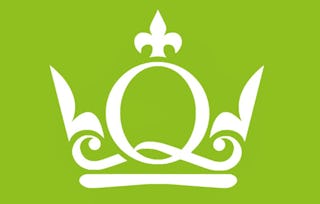In this course you will be introduced to the basic ideas behind the qualitative research in social science. You will learn about data collection, description, analysis and interpretation in qualitative research. Qualitative research often involves an iterative process. We will focus on the ingredients required for this process: data collection and analysis.

Qualitative Research Methods

Qualitative Research Methods
This course is part of Methods and Statistics in Social Sciences Specialization

Instructor: Gerben Moerman
116,645 already enrolled
Included with
1,397 reviews
Skills you'll gain
- Ethical Standards And Conduct
- Surveys
- Interviewing Skills
- Research
- Science and Research
- Research Design
- Report Writing
- Data Collection
- Social Sciences
- Qualitative Research
- Research Methodologies
- Skills section collapsed. Showing 10 of 11 skills.
Details to know

Add to your LinkedIn profile
See how employees at top companies are mastering in-demand skills

Build your subject-matter expertise
- Learn new concepts from industry experts
- Gain a foundational understanding of a subject or tool
- Develop job-relevant skills with hands-on projects
- Earn a shareable career certificate

There are 8 modules in this course
Welcome to the first week of the course. We start with an introduction, followed by two lessons on the Philosophy of Qualitative Research.
What's included
8 videos12 readings1 peer review
In the first module we discussed the philosophy of qualitative research, explaining some basic notions and general philosophical approaches. In this second module we'll discuss observation as an important method within qualitative research. What types of observation are there? How do we observe? And how do we analyse and describe our data?
What's included
9 videos10 readings1 peer review
What makes qualitative research 'good' is a rather difficult question. Different criteria are suggested, but within the field of qualitative research there is not much agreement on these criteria. However, there is quite some agreement on what good practices of qualitative research are. In this module we will start in lesson 1 with a discussion of good practices of qualitative research.
What's included
9 videos9 readings2 assignments
In this module we'll look at what a qualitative interview entails by trying to define it and by discussing different forms of interviewing behaviour.
What's included
7 videos9 readings1 peer review
In previous modules we discussed how you should observe a social situation or conduct a qualitative interview. Now we will focus on what to do with your data, by discussing qualitative analysis. In this module you will try to do a qualitative analysis by interpreting your observed data and try to code it.
What's included
6 videos10 readings1 peer review
In this module I will discuss ideas on writing in qualitative research, I will discuss mixing methods and talk about the ethical issues you should consider.
What's included
7 videos12 readings1 peer review
In this module there's no new material. The only requirement in this module is that you finish up the final peer review assignment.
What's included
1 reading
This is the final module, where you can apply everything you've learned up until now in the final exam. Please note that you can only take the final exam once every day, so make sure you are fully prepared to take the test. Please follow the honor code and do not communicate or confer with others taking this exam. Good luck! Once you've taken the exam, please consider doing the other courses in our specialisation track. I hope it was an enjoyable experience. If it was, please consider joining in with the Massive Open Online Research by my colleague Christian Bröer. Thanks for all your hard work, feedback and interpretations, the course team and your fellow learners really appreciate it!
What's included
1 assignment
Earn a career certificate
Add this credential to your LinkedIn profile, resume, or CV. Share it on social media and in your performance review.
Instructor

Offered by
Explore more from Governance and Society
 Status: Free Trial
Status: Free Trial Status: Free Trial
Status: Free TrialQueen Mary University of London
 Status: Free Trial
Status: Free TrialAmerican Psychological Association
 Status: Free Trial
Status: Free TrialAmerican Psychological Association
Why people choose Coursera for their career

Felipe M.

Jennifer J.

Larry W.

Chaitanya A.
Learner reviews
- 5 stars
73.44%
- 4 stars
18.25%
- 3 stars
4%
- 2 stars
2.21%
- 1 star
2.07%
Showing 3 of 1397
Reviewed on Dec 2, 2015
it was a lot of work and there were some errors and issues, esp. trouble with peer review. the professor was dynamic and encouraging. content and most activities were very helpful.
Reviewed on Aug 13, 2018
It was awesome experience indeed. I have learned lot of things about Qualitative Research Methods. These lessons will help me a lot to do my personal research. Enjoyed that course much.
Reviewed on Nov 10, 2020
An interesting take on qualitative methodology. The exams are some-what tough, compared to many other coursera courses. The teacher is very enthusiastic and has a clear idea about his topic.

Open new doors with Coursera Plus
Unlimited access to 10,000+ world-class courses, hands-on projects, and job-ready certificate programs - all included in your subscription
Advance your career with an online degree
Earn a degree from world-class universities - 100% online
Join over 3,400 global companies that choose Coursera for Business
Upskill your employees to excel in the digital economy
Frequently asked questions
To access the course materials, assignments and to earn a Certificate, you will need to purchase the Certificate experience when you enroll in a course. You can try a Free Trial instead, or apply for Financial Aid. The course may offer 'Full Course, No Certificate' instead. This option lets you see all course materials, submit required assessments, and get a final grade. This also means that you will not be able to purchase a Certificate experience.
When you enroll in the course, you get access to all of the courses in the Specialization, and you earn a certificate when you complete the work. Your electronic Certificate will be added to your Accomplishments page - from there, you can print your Certificate or add it to your LinkedIn profile.
Yes. In select learning programs, you can apply for financial aid or a scholarship if you can’t afford the enrollment fee. If fin aid or scholarship is available for your learning program selection, you’ll find a link to apply on the description page.
More questions
Financial aid available,
¹ Some assignments in this course are AI-graded. For these assignments, your data will be used in accordance with Coursera's Privacy Notice.

